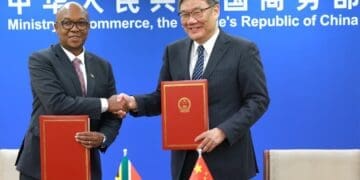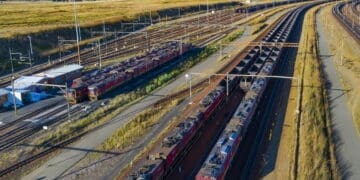By Noko Mashilo
AgriSETA (Agricultural Sector Education and Training Authority) provides financial support to farmers and agricultural businesses, aiming to enhance skills, boost productivity, and promote sustainable practices in the agriculture sector. Its funding programmes empower farmers, workers, and agribusinesses by offering essential resources for training, development and business growth.
Before applying for AgriSETA funding, it is essential to understand the categories of funding available and their requirements. These include support for skills development, training programmes, learnerships, apprenticeships and business development initiatives. The primary goal of these initiatives is to help farmers cultivate a skilled workforce, adopt advanced farming techniques, and optimise their business operations.

AgriSETA funding is available exclusively to registered and operational farming businesses, with start-ups not qualifying for assistance. AgriSETA CEO Dr. Innocent Sirovha explained that the farming business must be functional to meet eligibility criteria. The funding application window typically runs from 1 August to 15 September each year, and AgriSETA advertises this information through various communication platforms, including social media. The application process includes specific guidelines and required documentation tailored to address gaps in the sector.
It offers a range of funding programmes to support the agricultural sector. These programmes include National Qualifications Framework (NQF)-based qualifications such as learnerships and skills programmes, non-credit-bearing training tailored to business operations, support for cooperatives and small businesses, and mentorship-driven training initiatives.
The funding is designed to benefit a wide array of agricultural practices, including crop farming, livestock, agro-processing and other related industries. Sirovha provided details on the funding rates, explaining that learnerships were allocated R24,000 per learner, which included a stipend for eight months. Training grants were set at R30,000 over the same period for the training provider, while skills programmes were funded at R200 per credit per learner.
For cooperatives and small businesses, there are no fixed rates, as allocations are determined at the discretion of AgriSETA based on its budget, strategic plans, and sector priorities. While AgriSETA does not directly train farmers, it administers training grants that are implemented by accredited training providers or mentors appointed by applicants.
Grants are disbursed according to contractual agreements, and onsite monitoring ensures compliance and provides ongoing support throughout the training period. Among its notable achievements, AgriSETA recently completed a project aimed at upskilling people with disabilities between 2023 and 2024. Sirovha expressed pride in the initiative, explaining that its purpose was to promote inclusivity in the workplace and enable economic participation for people living with disabilities. For more information on AgriSETA’s programmes and funding opportunities, farmers can visit their website at www.agriseta.co.za or refer to its annual report.
































































